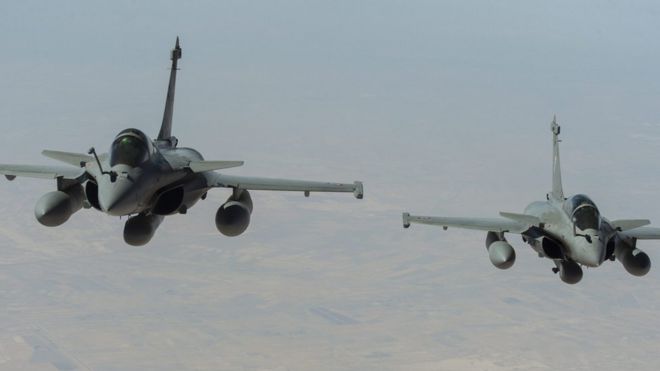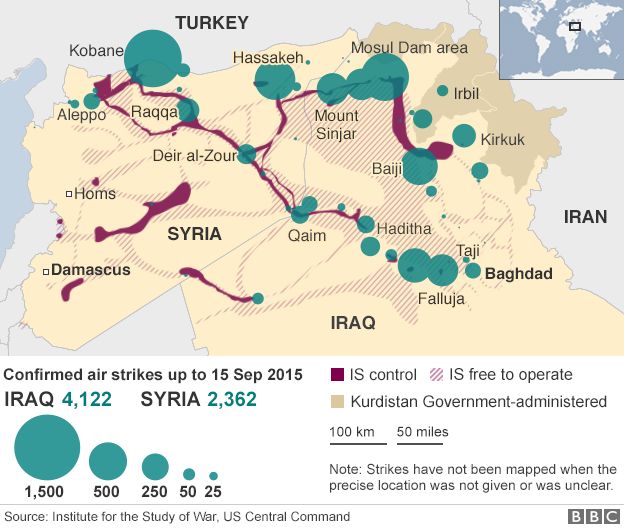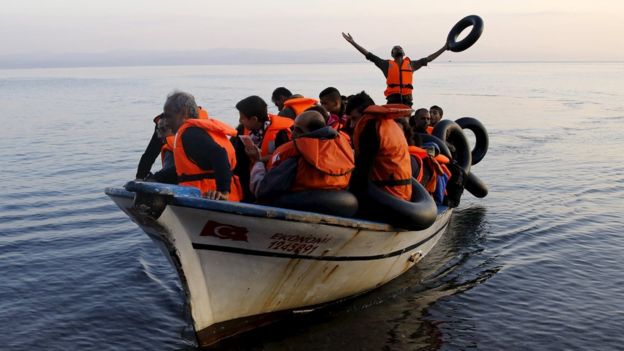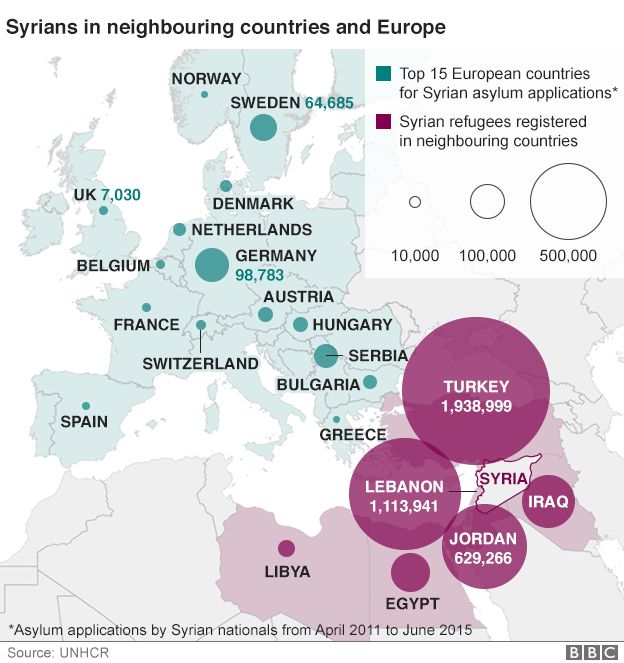 EPA
EPA
France has carried out its first air strikes against Islamic State militants in Syria.
The president's office said that French planes struck targets identified during reconnaissance missions conducted over the past fortnight.
France co-ordinated with regional partners for the operation, a brief statement said.
French jets have previously carried out air strikes against IS targets in neighbouring Iraq.
"Our country thus confirms its resolute commitment to fight against the terrorist threat represented by Daesh," the French Presidency said, referring to the militant group by another of its acronyms.
"We will strike each time that our national security is at stake," the statement added.
President Francois Hollande announced earlier this month that he was preparing to send jets to Syria. He said at the time that terror attacks had been planned against France from Syria.
A US-led coalition has been carrying out airstrikes against IS in Syria and Iraq for more than a year.
France, like the UK, has previously confined its air strikes against the Islamic State group to Iraqi airspace. The UK announced earlier this month it had carried out a drone strike against two British citizens in Syria but has yet to fly manned operations in Syrian airspace.
Diplomatic efforts
More than 200,000 Syrians have been killed since the country erupted into civil war in 2011. Syrian President Bashar al-Assad has been accused of killing tens of thousands of his own citizens with indiscriminate bombing in rebel-held areas.
Approximately four million have fled abroad, with many attempting to enter Europe.

 Reuters
Reuters
Faced with an influx of hundreds of thousands of people, EU nations have approved a plan to distribute 120,000 migrants and refugees from Greece and Italy to other member states.
France has committed to taking in 24,000 people over the next two years, although it has been criticised along with the US and some other EU member states for not doing enough.
With another million people at least expected to flee Syria, Western powers are redoubling their efforts to reach a diplomatic solution to the conflict.
UK Prime Minister David Cameron, along with US President Barack Obama and Mr Hollande, has previously demanded that Mr Assad be removed from power as a condition of any peace deal, but he is expected to soften that position this week.
Mr Assad has a staunch ally in Russian President Vladimir Putin. In order to secure Russia's support in the fight against IS, Mr Cameron is expected to tell a meeting of the United Nations that Mr Assad could remain temporarily in power at the head of a transitional government.
The prospect of finding a diplomatic solution to the conflict had been complicated by Russian military build-up in Syria support of Mr Assad's regime.
 Stay Updated And Connected With sofogist.Com Daily..
Stay Updated And Connected With sofogist.Com Daily.. 





